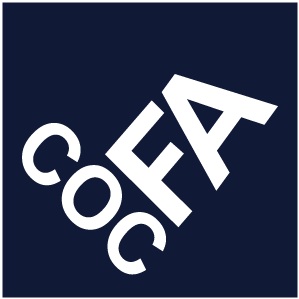Resources
Contracts
Click Here to download the 2022-24 Contract
Click Here to download the 2020-22 Contract
Click Here to download the 2018-20 Contract
Click Here to download the 2017-18 Contract
Click Here to download the 2015-17 Contract
Click Here to download the 2012-15 Contract
Revised Our Union Makes Us Strong — download information about how your faculty union can help you.
Contract FAQs
Q: Am I required to attend graduation?
A: Currently, graduation is scheduled after the end of the academic/working calendar, which means that attendance is not required. Faculty members who attend commencement do so voluntarily on their own time.
Q: Do I have to do SLOs?
A: Although SLOs are not included in the professional responsibilities listed in the contract, many faculty members have voluntarily done SLOs beyond their contractual obligation.
Q: What kinds of issues are worthy of a grievance?
A: A faculty member may grieve any violation of the terms included in the contract, such as working conditions, tenure process, evaluations or workload.
Q: How many hours am I required to work per week?
A: Full-time faculty are required to work for at least 35 hours per week. While some of those hours are spent on campuses, such as during traditional face-to-face classes and office hours, there is no specific requirement that states the full 35 hours must be spent on campus.
Q: Do I have a right to representation when meeting with management?
A: Members have the right to union representation whenever they are in a meeting that could result in disciplinary action or in a change of working conditions. For more information, read about our Weingarten Rights. (Link to this question within the general FAQs under Resources/FAQs.)
MOUs
Dues Letters
Climate Surveys
2019 Staff
2019 Admin
2016 Staff & Admin
2008 Staff & Admin
ByLaws & Standing Rules
Reimbursement
COCFA Members Expense Reimbursement Policy updated 2016
Member Expense Statement
Key Things To Know
FAQs
PowerPoint Presentation on Grievance vs. Complaint Process
Faculty and District- Fostering Positive Relationships
PowerPoint Presentation on Evaluations
Tenure, Non-Tenure, and Adjunct Evaluations
Q: What are the 176 Contract days?
COCFA STRS 176 Day Payroll Calendar 2016-17
Q: What is the Faculty Obligation Number (FON)?
A: The FON is the Full-Time Faculty Obligation Number. This is a minimum number of full-time instructors the district must hire in order to comply with state law. California Code of Regulations title 5 section 51025 requires districts to increase the number of full-time faculty over the prior year in proportion to the amount of growth in funded credit FTES. It changes every year. It usually goes up with enrollment (although it went down in 2012-13 because of the budget crisis). More information is available through the California Community Colleges Chancellor’s Office.
Q: What are Weingarten Rights?
A: Weingarten Rights give you the right to have a union representative present during any interview or discussion that could lead to disciplinary actions or significant changes in working conditions. This was made possible by a 1975 Supreme Court decision. Once a request for a union representative has been made, the employer must stop the interview and do one of the following:
Wait for a union representative to arrive.
Reschedule the interview for another time when a representative is available.
Ask the employee to waive his or her rights and continue the interview.
End the interview.
Q: How does collective bargaining work?
A: Collective bargaining is a process of negotiations between an employer and group of employees aimed at reaching a contractual agreement about working conditions. Elements that could be included in a collective bargaining negotiation include compensation, working conditions, health benefits, retirement, workload, office hours, academic calendar, class sizes, tenure process, professional development, release time, professional responsibilities and more.
Typically, the topics to be negotiated by the COCFA negotiation team are determined in advance through a survey of the members. Once a tentative agreement is reached through the collective bargaining process, COCFA members are given the opportunity to vote on the revised contract.
Q: How does the COCFA assist its members with grievances against the district?
A: The COCFA advocates for faculty who have disputes with the district. Examples of common grievances include:
Faculty workload demands beyond the boundaries of the contract.
Docking faculty pay for missing division meetings.
Procedure and content of disciplinary measures.
Supervision and evaluation of faculty by deans.
COCFA leadership communicates frequently with the district administration about potential conflict between district practices and the faculty. These issues are sometimes resolved verbally. In other cases, the agreement is recorded in a formal memorandum of understanding (MOU).
Useful Links
California Teachers Association
National Education Association
The Community College Association
California Community Colleges Chancellor’s Office
California Education Code
